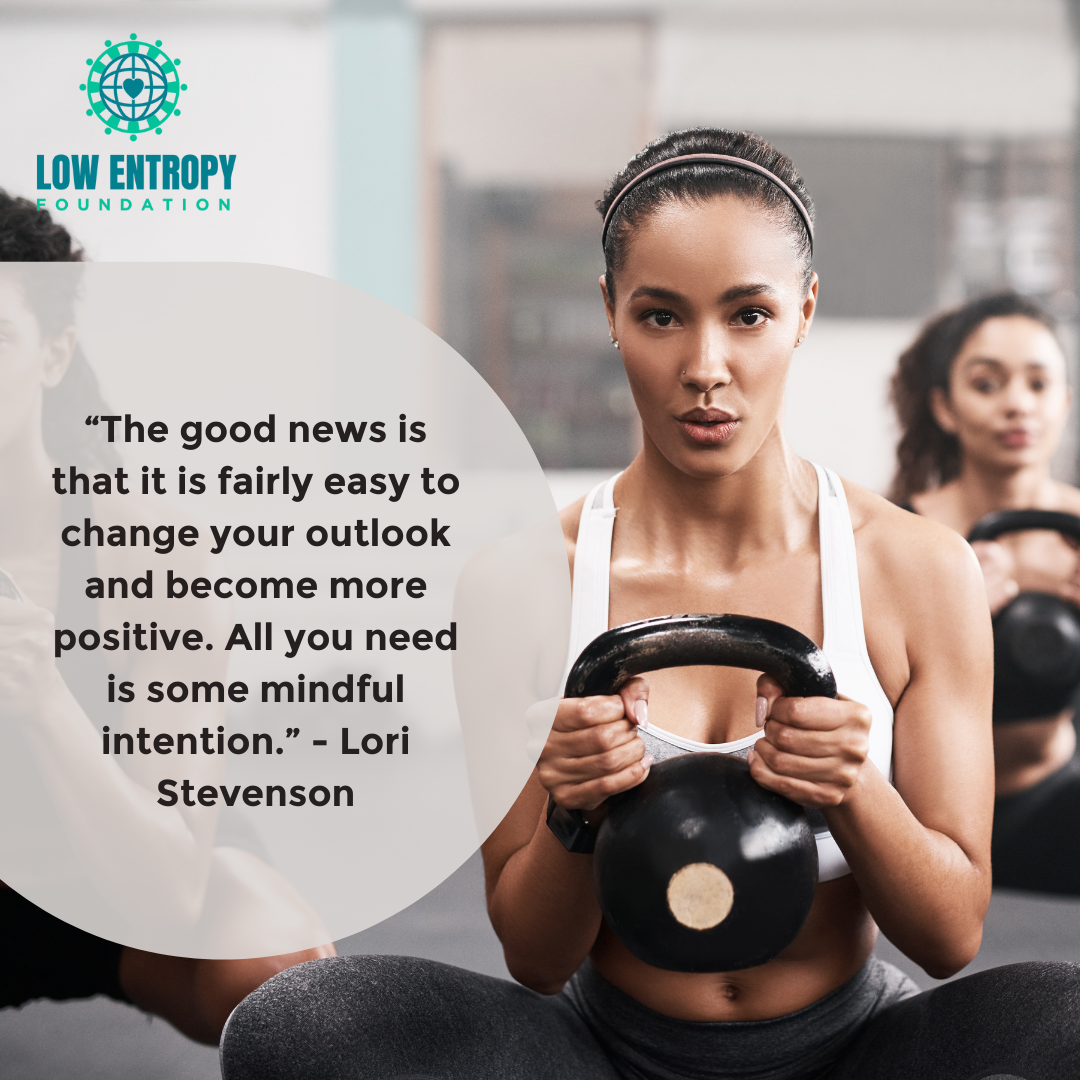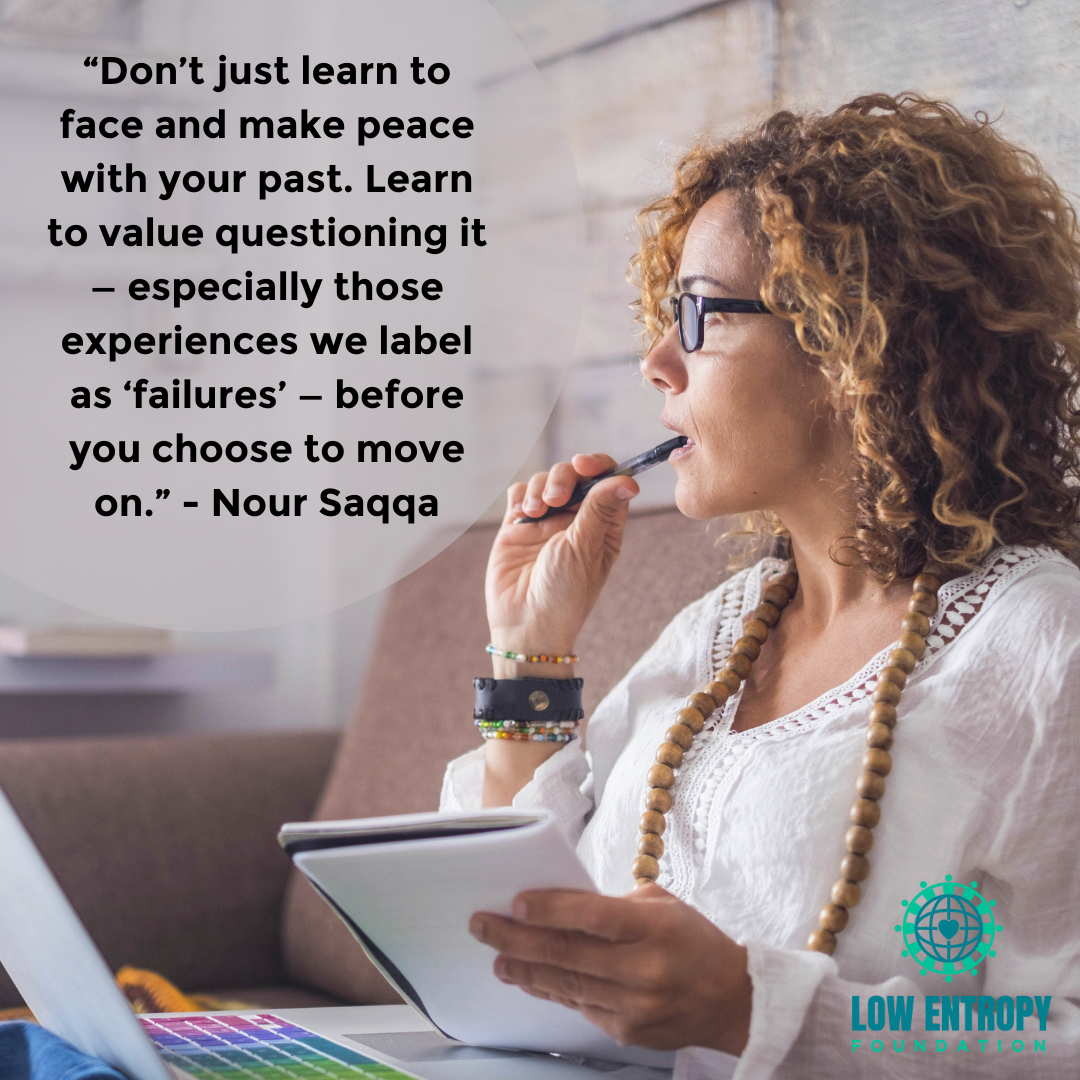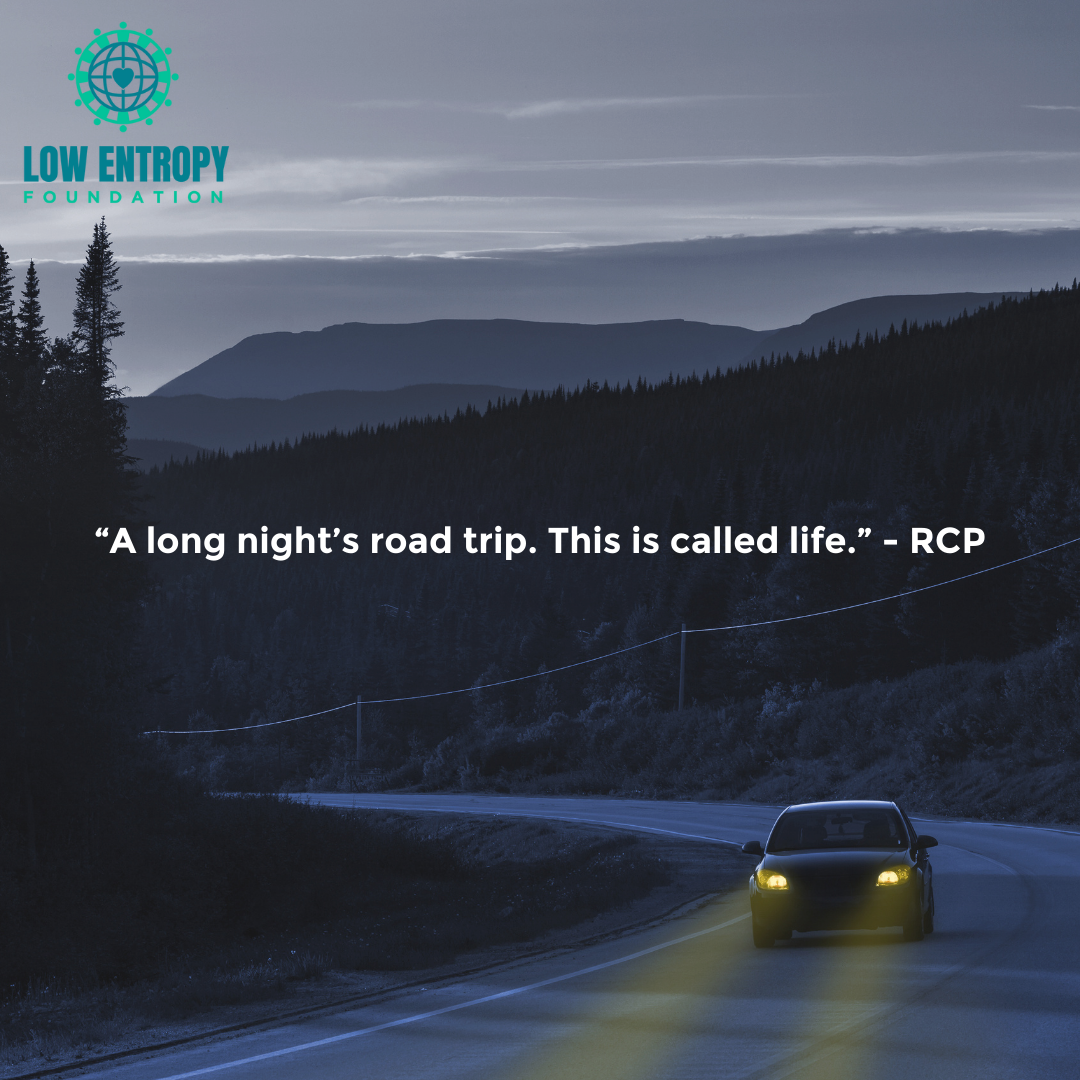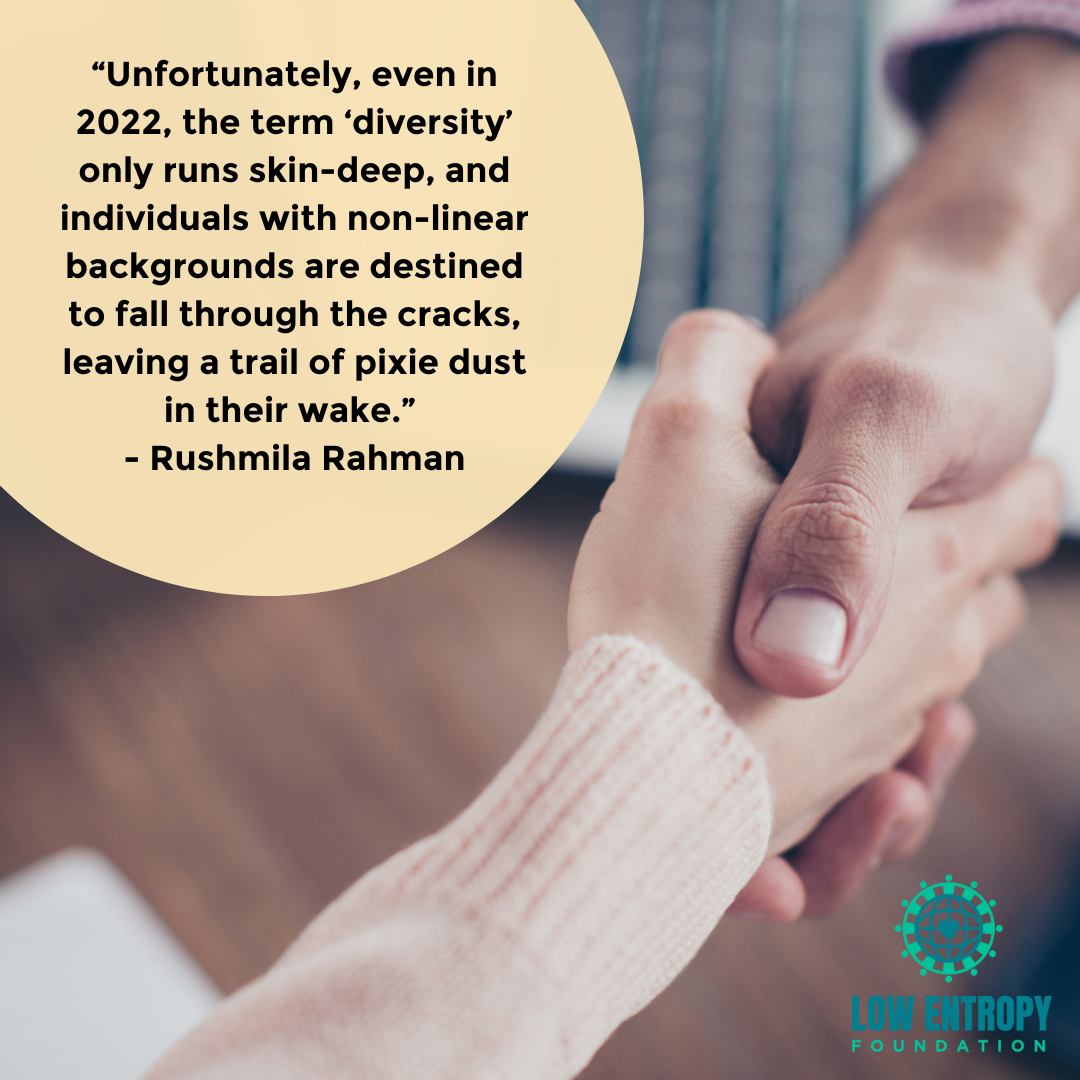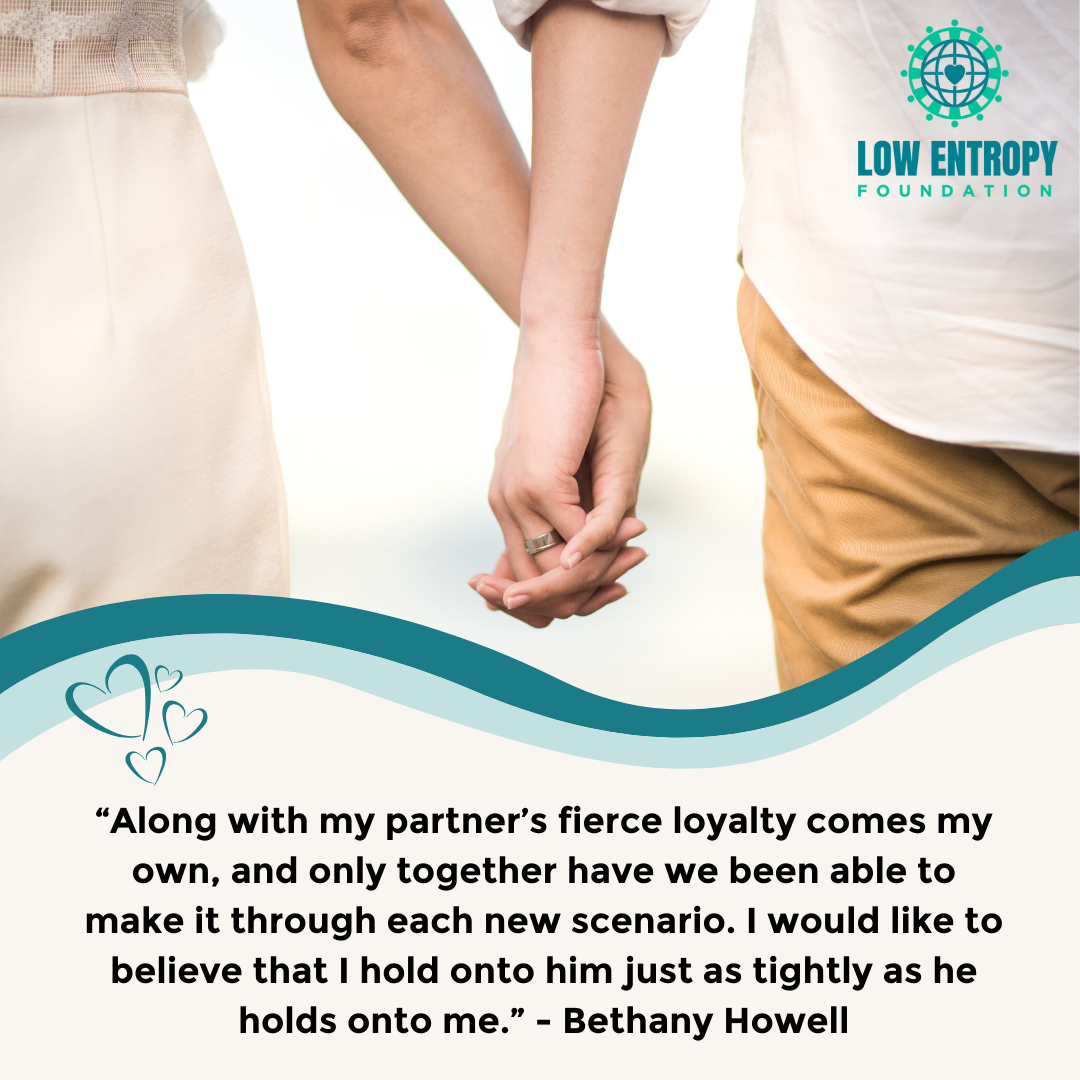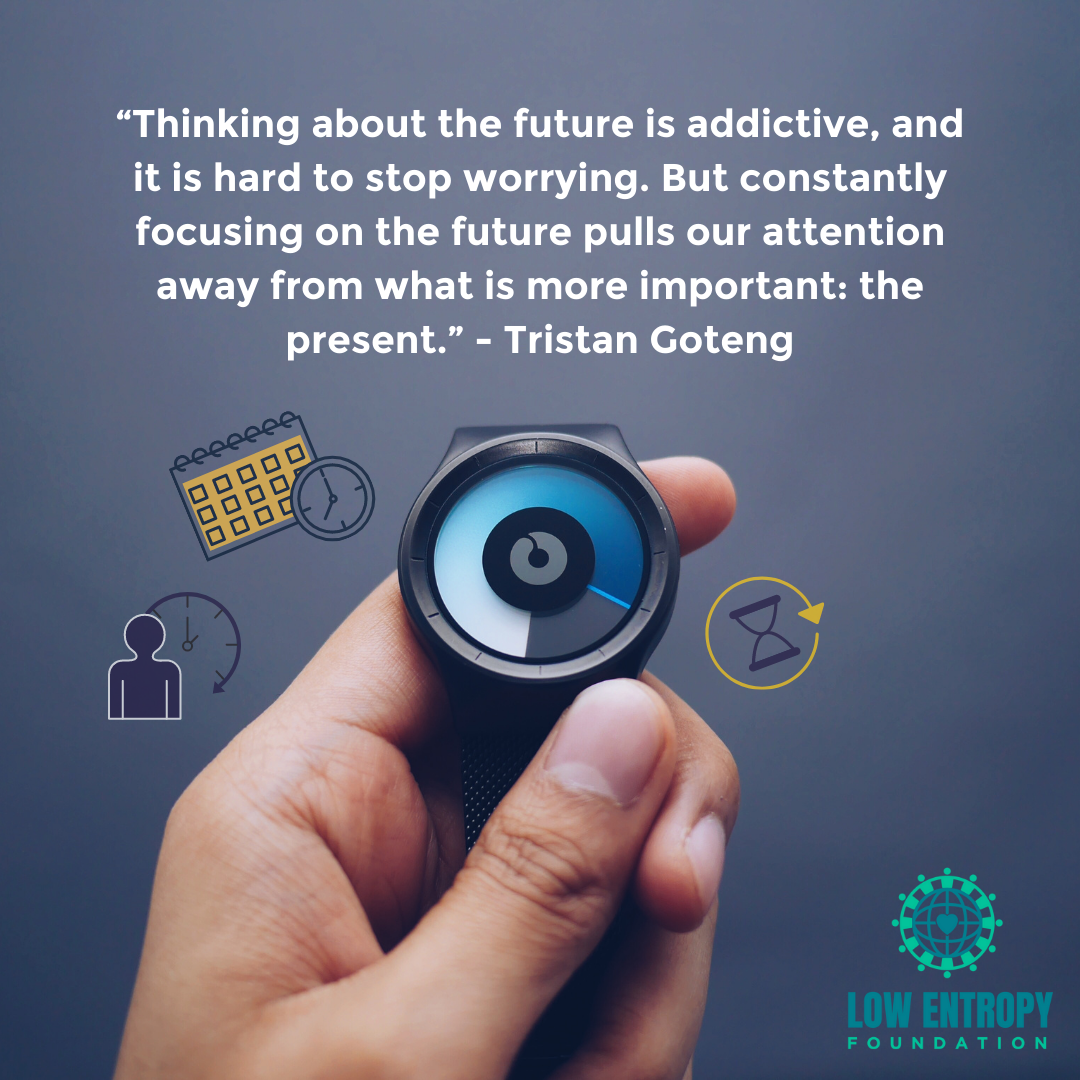Lori Stevenson (she/her/hers), Low Entropy Volunteer Writer
You know those days where you oversleep, then have a terrible morning where everything just seems to go wrong? It sets the precedent for the day — things just continue to spiral downward. Then there are days where you wake up smiling, with a spring in your step, and you own the entire day. Coincidence? Millions of people, and science, say no.
We are bombarded with positive thinking quotes, and for good reason. It has been repeatedly shown that a positive outlook facilitates positive results. Henry Ford nailed it — “Whether you think you can or think you can’t, you’re right.” Maybe that sounds like wishful thinking, but let’s take a closer look. If you honestly think that you can’t land that job, write that book or get a date with that cute barista at your favorite coffee shop — are you going to even try? Probably not. Those with a positive attitude approach challenges with confidence in themselves and their abilities — they will at least try. This doesn’t guarantee their success by any means, but they have a much better chance than someone who approaches a challenge with their inner voice saying “You can’t.”
The good news is that it is fairly easy to change your outlook and become more positive. All you need is some mindful intention. Here are some simple tips that you can add into your day.
Intentionally Increase Your Positive Thoughts
There is a good reason why almost any research you do into happiness, positive thinking or success will yield a common denominator — gratitude. The benefits of gratitude have been extolled as far back as the ancient philosophers Plato, Epicurus, Cicero and Epictetus, to name a few. Gratitude has been shown to increase happiness, which in turn increases positive behavior. It engages the prefrontal cortex of the brain, the area responsible for feelings like accomplishment and associated with the arrangement of thoughts and actions in accordance with internal goals.
Employ a daily practice of gratitude — you can choose to journal these thoughts, or just acknowledge them mentally. I choose the mental option, highlighting three things that I am grateful for each day. If you are having trouble thinking of unique things daily, make it fun and easy by finding a theme. I like alphabetical — starting with A and working your way through to Z, every day think of three things you are grateful for that begin with that day’s letter. Other themes I have used are the five senses, different decades of my life and different areas of life, such as personal, family, professional and social. There are endless things to be grateful for!
To further strengthen your positive thoughts, you can also try daily mantras and inspirational quotes — there is an abundance online — or look to positive folks in your life for support and inspiration.
Watch Your Internal Language
In line with Henry Ford’s quote above, language matters. Listen to your internal dialogue and look for opportunities to show yourself empathy or reframe a situation. Do you have a fixed mindset, where what is, is, and can not be changed? Or do you have a growth mindset, where what is may be changed or improved? Recently a colleague introduced me to the “power of yet.” This is incredibly effective in making the jump from a fixed mindset to a growth mindset. I’m working on teaching myself Spanish — it is difficult and at times frustrating, but I keep telling myself that I’m not fluent yet. The next time you are up against a challenge, switch that internal dialogue from “I don’t know how to do that” to “I don’t know how to do that yet, but I can work on improving my skills.” You’ll be surprised how that simple tweak will serve you.
Look for the Lesson or Opportunity
Maya Angelou once said “If you don’t like something, change it. If you can’t change it, change your attitude.” Positive, successful people focus on what they have influence over or can control and learn to let go of what they cannot. Think of being stuck in traffic. No one likes to be there — we have better places to be and things to be doing. It can immediately give rise to feelings of anger and frustration, maybe even helplessness. These feelings do nothing to change your situation, but effectively ruin your previous good mood, and perhaps the rest of your day. Instead, try looking for the opportunity that this may present. Maybe it gives you time to have a good conversation with your travel companion(s). Take out your phone and dictate your shopping list or your thoughts for the big meeting you have coming up. Tune out by tuning in to a great podcast or audio book. Reflect on your day. Do a body scan meditation. You are going to be stuck in traffic no matter what you do — would you rather be miserable, or peaceful and maybe even productive? The same mindset serves in those instances where you have tried something and were not successful. Instead of focusing on what went wrong or what you didn’t achieve, think instead of what you’ve learned — about yourself, others or the process. What could you do differently next time? This is growth, and it always breeds success.
Finally, being positive does not mean living in denial of the negative aspects of life — these things do exist, and we face them on a regular basis. Positivity enables us to manage those instances better, by acknowledging that they are part of us, but don’t define us, bringing hope and optimism that even the worst of times will improve.
Life is truly what you make it – what do you want to make yours?
—
My name is Lori Stevenson and I am a management professional living in the beautiful Okanagan. In my spare time I enjoy reading, writing, yoga, teaching myself Spanish and walking my dogs. I am pleased to share my ideas, thoughts and knowledge here with the Low Entropy community!







